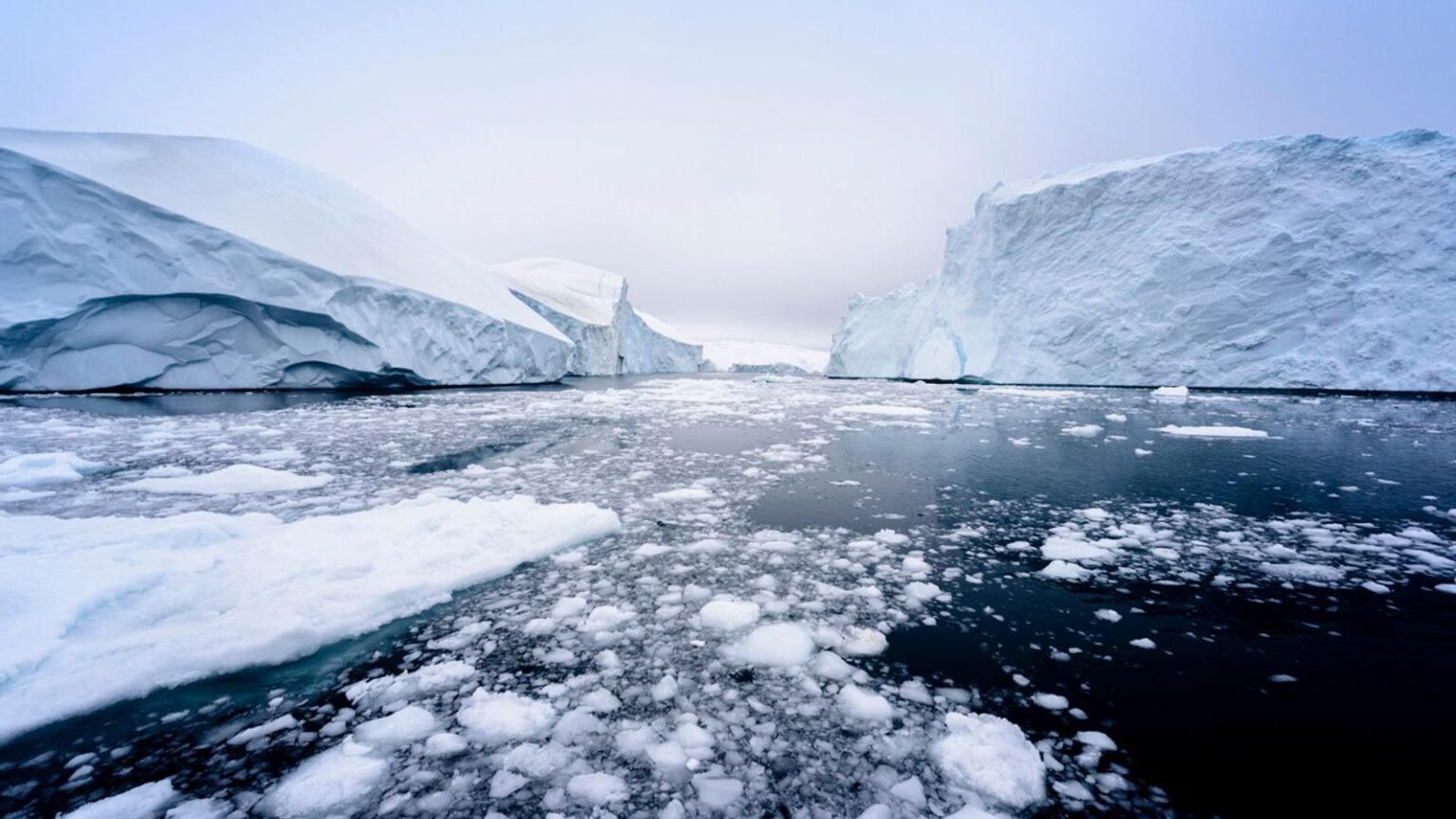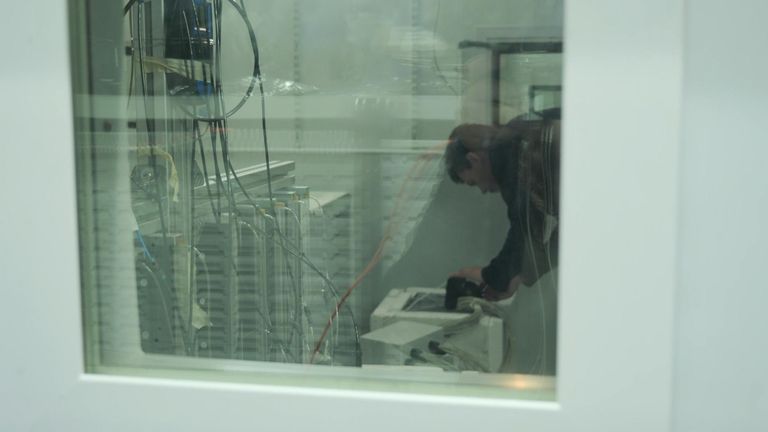Plans to save ice in the polar regions and “repair” the climate using technology are a “flawed” distraction from the urgent need to reduce greenhouse gases, according to a new scientific assessment.
The review of proposals to reflect sunlight or use barriers to keep warm sea water at bay concludes they are too expensive, hard to scale up and may do more harm than good.
But the report has reopened the controversy over so-called geoengineering.
The Arctic is warming at least three times faster than the rest of the planet, raising sea levels and increasing the risks of extreme weather in Europe.
And other scientists say every effort is needed to prevent climate breakdown in the fragile polar regions.
But Professor Martin Siegert, a glaciologist at the University of Exeter, who led the new assessment, told Sky News that using technology to fix the problem was a “false promise”.
“It’s an appealing proposition,” he said. “But it doesn’t stack up at all.
“It’s quite dangerous actually because some people might rely on it as a way to cure the planet, but we just don’t think it’s viable.”
The review, published in the journal Frontiers in Science, looked at well-publicised proposals to reduce the impact of climate change on polar regions.
They include techniques to spray particles into the upper atmosphere to reflect sunlight, use barriers anchored to the seabed to keep warm water away from floating ice shelves or add nutrients to polar oceans to encourage growth of microscopic creatures that suck up carbon from the atmosphere.
But the assessment concludes the techniques are unproven and may have unpredictable effects on the atmosphere and environment.
Professor Siegert told Sky News: “Disproportionately high amounts of attention has been given to some of these projects.
“The thing we can do to save the polar regions, the thing we could do to call the planet is to cut emissions of greenhouse gasses to net zero within the next 30 or so years and that will help our polar regions and that will certainly help the planet.”
But British scientists due to carry out one of the first trials of geoengineering in the Arctic this winter say no idea can be off the table.
The team, from the University of Cambridge, will use pumps to flood the surface of floating ice with freezing seawater, with the hope that it will become thicker and more resilient to melting over the summer.
They believe it could preserve the reflective white blanket over the Arctic Ocean and help cool the planet.
Shaun Fitzgerald, director of the University’s Centre for Climate Repair, said the technology needs to be tested.
“If we leave it 20 years and climate change continues in the way that we see it right now, with the disasters unfolding, and we haven’t done our homework, in other words, thinking about what the potential options are, then we’re going to be in a terrible place,” he told Sky News.
“We owe it to future generations, to equip them with more knowledge about this.
“It may well be an option that they would like to consider because we haven’t made the progress with emissions reduction.”
More from Sky News:
Zuckerberg sues Meta – but it’s not what you think
Huge shortfall in NHS funding for weight-loss jab
The trial is being funded by the government’s Advanced Research and Invention Agency (ARIA), which backs ideas on the very edge of what’s possible.
Four pumps will be installed over a square kilometre of sea ice and the impact tracked over several months.
But the vision is for as many as a million pumps covering 10% of Arctic sea ice to reflect enough sunlight to make a difference to climate change.
“There are no small numbers when it comes to tackling climate change,” said Dr Fitzgerald.
“It’s probably within the realm of engineering do-ability, something that is viable.”



